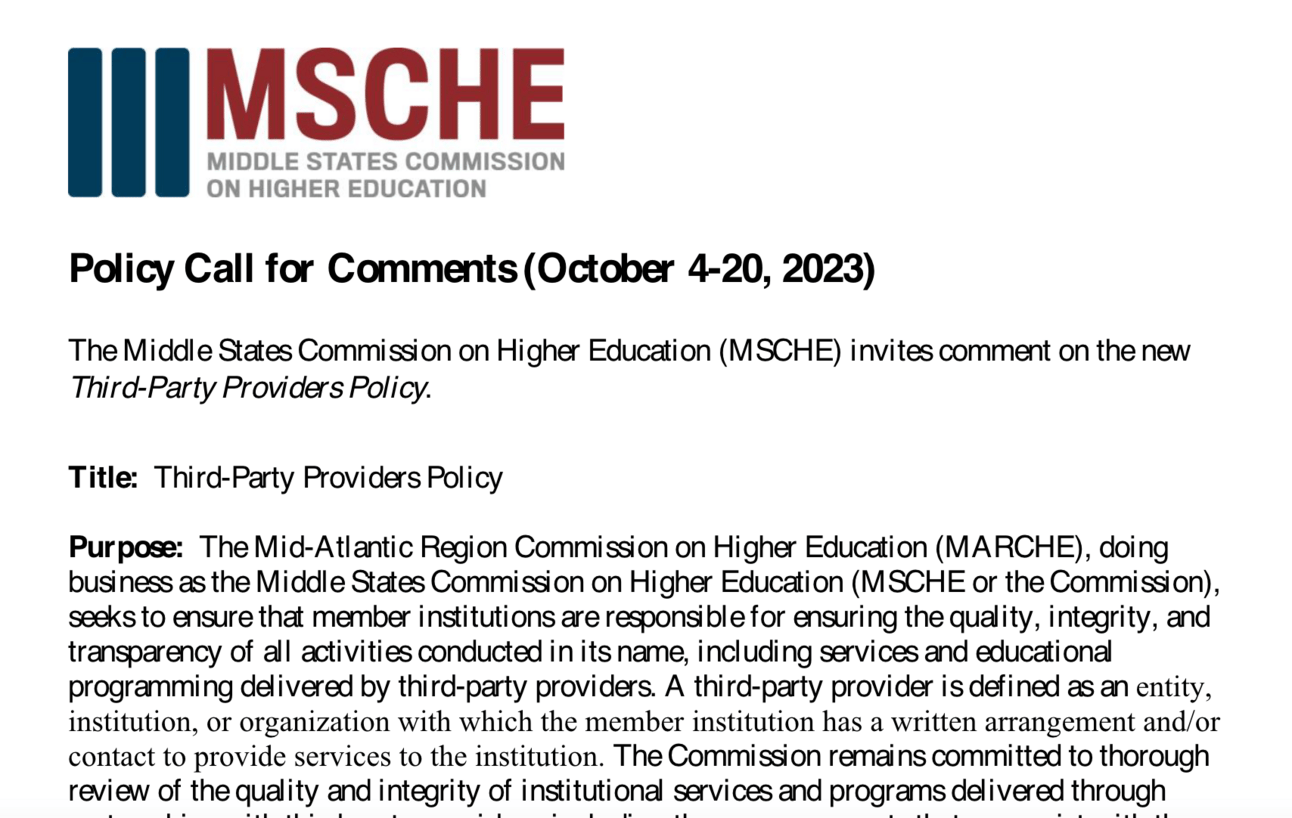Venue Shopping for TPS
The Middle States Commission, a regional accreditor, is proposing a massive TPS-style expansion

Was this forwarded to you by a friend? Sign up, and get your own copy of the news that matters sent to your inbox every week. Sign up for the On EdTech newsletter. Interested in additional analysis? Try with our 30-day free trial and Upgrade to the On EdTech+ newsletter.
I’m working on a more significant post about major updates on the third-party servicer (TPS) regulatory status at the federal level (expect that tomorrow), but in the meantime I think it is worth sharing with premium subscribers that we now have at least one accreditor getting into the game and providing their own expansive policy changes, using similar methods.
Background
For new readers, in February the US Department of Education (ED) released new guidance to dramatically expand the definition of a TPS entity to essentially capture most all of EdTech. Higher Ed Institutions (HEIs) have to report all TPS contracts, and TPS entities must be audited and have additional limitations. That TPS guidance (through a Dear Colleague Letter, or DCL) would have dramatically expanded the bureaucratic burden for HEIs, most likely put many EdTech vendors out of business, and in essence federalized the EdTech industry.
This move stirred the hornet’s nest, and nearly all of the higher ed community not only protested the guidance but also pointed out that it would not solve any real problems. Fewer than 1% of public comments supported the TPS expansion, and the majority of those supporting the move were think tanks / activist groups sharing a common funding source of the Arnold Ventures, a coalition deeply integrated with ED.
TPS was put on hold, and the higher ed community has been waiting for a re-release or some type of clarity.
Middle States Then
The most important public comment against the TPS expansion guidance was led by the American Council on Education (ACE), and one of the signatories of that letter was the Middle States Commission on Higher Education (MSCHE). MSCHE is one of the six regional accreditors, and it generally covers colleges and universities from DC north through New York. On MSCHE’s website, the group highlighted their concern with TPS expansion in April.
The Middle States Commission on Higher Education (MSCHE) joined the American Council on Education (ACE) and more than 80 higher education organizations in encouraging the United States Department of Education (USDE) to rescind the February 15, 2023, Dear Colleague Letter (DCL), “Requirements and Responsibilities for Third-Party Servicers and Institutions.” The letter from ACE, states,
“We strongly encourage the Department to rescind the DCL and then implement other measures to better focus on the entities that are of concern to the Department. We believe that the upcoming negotiated rulemaking session presents a better opportunity for considering alternative approaches that will better meet the Department’s goals while minimizing unintended consequences.”
The letter is endorsed by organizations and associations representing students, institutions of higher education, advocates, and others.
Click to read the letter.
That seems straightforward, but something changed.
Middle States Now
Earlier this month MSCHE released its own guidance on changing definitions of third-party providers (TPP) and third-party servicers (TPS), and it duplicates most of the worst parts of ED’s TPS guidance. The guidance language is so broad that it would force HEIs to disclose almost all EdTech contracts, the public comment process was ridiculously short - possibly going against MSCHE’s own process rules - and it would solve no problem other than share thousands of contracts with MSCHE.

(while we’re at it, could someone teach MSCHE how to control fonts in a PDF?)
From its October 4th notice [emphasis added]: